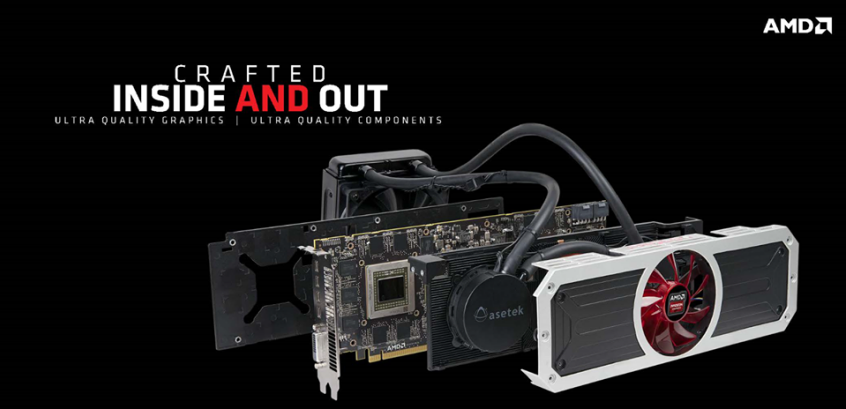
Advanced Micro Devices, the company that is currently working on releasing it's highly anticipated R9 300 series of graphic chips, will be incorporating interesting features on to its single GPU flagship solution, the R9 390X. Apart from featuring 4 GB HBM (high bandwidth memory) instead of the lesser performing GDDR5 memory chips, the R9 390X will also be assimilated with a custom liquid cooler that will keep noise and thermal levels of the graphics chip, below threshold limits.
It is speculated that the upcoming graphics card will be using a 120 mm Asetek based design variation that was used on the company's previous dual GPU solution, the R9 295X2. While AMD's reference designed R9 390X will be shipped with a custom cooler, the company's sub-vendors, which include the likes of Sapphire, XFX, HIS, Powercolor, Gigabyte, MSI and Asus may ship the regular version of the GPU, which includes an air cooler. Neither AMD nor its partners have commented on the cooling solution but to satisfy AMD's consumers, it would be a very prudent move to provide a custom solution.
With the custom liquid cooler, PC gamers and overclockers will be able to keep the overall temperature of the graphics chip far lower compared to what air coolers are able to achieve, which will allow them to get some additional performance out of the product by using 3<sup>rd party software to forcefully increase its frequencies. So far, it has been revealed that the stock GPU frequency of the R9 390X will be at 1018 Mhz and thanks to the HBM stacked on the product, it will feature twice the amount of memory bandwidth compared to its direct predecessor, the R9 290X. Details of both graphic chips have been detailed below:
- AMD Radeon R9 390X Fiji XT: 4 GB Stacked HBM with 640 GB/s memory bandwidth
- AMD Radeon R9 290X Hawaii XT: 4 GB GDDR5 with 320 GB/s memory bandwidth
The processor manufacturing company's upcoming series of GPUs are expected to be released during Q2 2015 and will go head to head with NVIDIA's Maxwell architecture of products, named the GeForce GTX 900 series.













